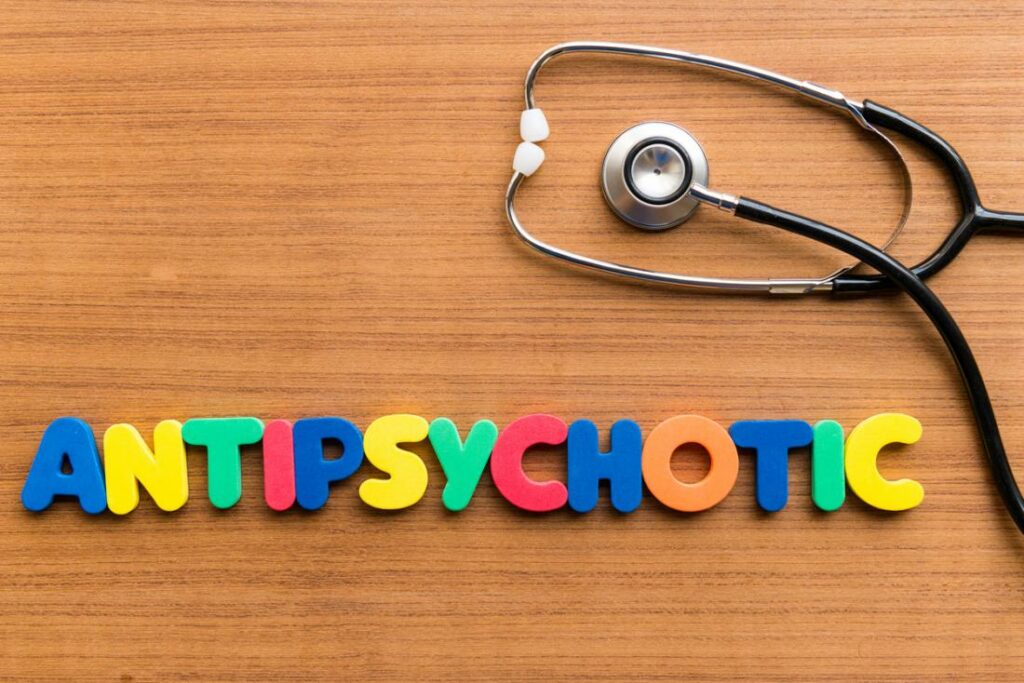Antipsychotics are a type of medication for mental illnesses. They include schizophrenia, bipolar disorder, and depression. These medications can be very helpful for people with these conditions. But they also have side effects that you need to know about before you start taking them. In this post, we will talk about antipsychotics. You may decide to take these if you want to. But you should know more about them so you can make a good decision.
Contents
- 1 What Are Antipsychotics?
- 1.1 Types Of Antipsychotics
- 1.2 When Do People Take Antipsychotics?
- 1.3 Treatment With Antipsychotics
- 1.4 Antipsychotics Dosage
- 1.5 Side Effects Of Antipsychotics
- 1.6 How Long Do Antipsychotics Last?
- 1.7 Can Antipsychotics Be addictive?
- 1.8 Can I Take Antipsychotics With Other Medicines?
- 1.9 Precautions that should be taken
- 1.10 Withdrawal
- 2 Conclusion
What Are Antipsychotics?

Antipsychotics are a type of medication that is used to treat mental health conditions, such as schizophrenia and bipolar disorder. They work by changing the levels of chemicals in the brain that may be involved in causing these conditions.
Types Of Antipsychotics

There are several different types of antipsychotics, which are classified based on their chemical structure. The most common types are:
- First-generation antipsychotics, which include chlorpromazine (Thorazine), haloperidol (Haldol), and perphenazine (Trilafon).
- Second-generation antipsychotics, which include aripiprazole (Abilify), clozapine (Clozaril), olanzapine (Zyprexa), quetiapine (Seroquel), risperidone (Risperdal), and ziprasidone (Geodon).
- Third-generation antipsychotics, which include iloperidone, asenapine, paliperidone.
There are also several other types of antipsychotics, which are less common.
When Do People Take Antipsychotics?
Antipsychotics may be used to treat behavior problems caused by mental illness or dementia, such as:
- Agitation: Feeling restless, nervous, or tense.
- Aggression: Acting out in a hostile or violent way.
- Delusions: False beliefs that are strongly held even though they are not based in reality.
- Hallucinations: Seeing, hearing, smelling, or feeling things that are not there.
- Impulsivity: Acting without thinking about the consequences.
- Self-injury: Hurting oneself on purpose.
Treatment With Antipsychotics
Antipsychotics are not a cure for mental illness, but they can help to control the symptoms. People usually take these medicines for a short period of time, until their condition is under control. Then they may be able to stop taking these medications. If people take them for a long time, they might need to have blood tests done. These are tests that check if the medicine is causing other health problems.
Antipsychotics Dosage

Antipsychotics are available in different forms, including tablets and liquid that is given by mouth. Your healthcare provider will tell you how much medication to take each day based on your medical condition.
Side Effects Of Antipsychotics
Like all medicines, there are some side effects associated with antipsychotic use. These can include:
- Abnormal movements, such as a condition called tardive dyskinesia.
- Dizziness or drowsiness.
- Lightheadedness with standing up suddenly from sitting or lying down (called orthostatic hypotension).
- Nausea and vomiting.
- Sleep problems, including insomnia and restlessness at night (called akathisia).
- Weight gain.
- Changes in blood sugar levels, which can increase the risk for diabetes.
- Blurred vision.
- Constipation.
- Sexual problems, such as difficulties with erections or ejaculation in men and decreased sexual desire in women.
- Rarely, an allergic reaction to these medicines can occur, which can cause a rash, swelling, and difficulty breathing.
Talk to your healthcare provider about any side effects that you are experiencing. The doctor may be able to change the amount of medicine you take. Or he can prescribe another medicine to help with the side effects.
How Long Do Antipsychotics Last?
The effects of antipsychotics usually last for a few hours. This is why people take these medications several times a day.
Can Antipsychotics Be addictive?
No, antipsychotics are not addictive. However, if you stop taking them suddenly, you may experience some withdrawal symptoms. Your healthcare provider can help to wean you off of these medications.
Can I Take Antipsychotics With Other Medicines?

Yes, antipsychotics can be taken with other medicines. However, you should speak to your healthcare provider before taking any new medications. He or she can make sure that the combination of medicines will not cause harmful side effects.
There are a number of different types which include aripiprazole (Abilify), clozapine (Clozaril), olanzapine (Zyprexa), quetiapine (Seroquel), risperidone (Risperdal), and ziprasidone (Geodon).
There are also several other types of antipsychotics, which are less common.
Precautions that should be taken
- People with a history of heart problems should be cautious when taking antipsychotics because these medications can cause an abnormal heartbeat.
- Antipsychotics can also raise blood sugar levels and increase the risk for diabetes. People with diabetes should monitor their blood sugar levels carefully when taking these medicines.
- Some people experience sleep problems when taking antipsychotics. This can include difficulty falling asleep, restless sleep, and vivid dreams. If you experience these problems, speak to your healthcare provider. He or she may be able to change the dose of your medication or prescribe a different medicine to help you sleep.
- Antipsychotics can cause some people to gain weight. You can prevent this by following a healthy diet and exercising regularly.
- These medicines are usually taken for several months until the person’s symptoms improve. Then they may be able to stop taking these medications if their condition remains stable over time. If people take these medicines for a long time, they might need to have blood tests done to make sure that their liver is working properly.
Withdrawal

If you stop taking antipsychotics suddenly, you may experience some withdrawal symptoms. These can include headaches, nausea, vomiting, and dizziness. Your healthcare provider can help to wean you off of these medications.
These are a type of medication that treats mental health conditions such as schizophrenia and bipolar disorder.
Conclusion
Antipsychotics are a type of medication that controls or reduces psychotic symptoms. They come in pill form, injection, patch, or through the mouth as an oral spray. Common side effects include sedation and weight gain while some rarer but more serious potential risks may include diabetes and heart problems. Before starting treatment with an antipsychotic, it is important to talk to your doctor about any concerns you might have.
If you are looking for affordable Online Counseling MantraCare can help: Book a trial therapy session


